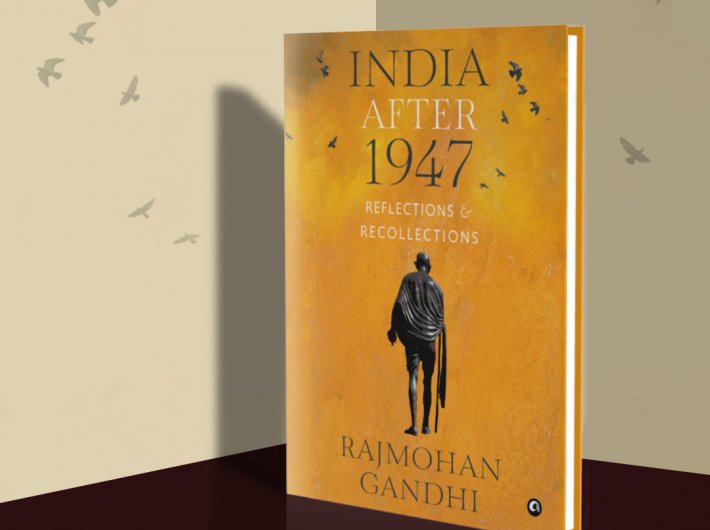Rajmohan Gandhi’s ‘India after 1947’ can be read in one sitting – and needs to be reread several times these days
India after 1947: Reflections & Recollections
By Rajmohan Gandhi
Aleph, 118 pages, Rs 399
Rajmohan Gandhi was about 11 when India won independence. As the nation celebrates 75 years of freedom, how would he – and others like him – feel? A unique freedom struggle had inspired new dreams on that day; a nascent nation had set out on a journey to find its true potential. Three quarters of a century later, is the nation still on course? What do those who have walked on this path for all of these seventy-five years have to say to those who will take this journey further?
In his new work, ‘India after 1947’, Gandhi offers his answers, along with his reminiscences of this journey. There is a lot to get nostalgic about, but Gandhi is painfully aware of the context. Like two of his recent works, ‘Why Gandhi Still Matters’ and ‘Founding Fathers’, in this short tract he is again seeking once again to correct new, dangerous myths and remind us of the path that was delineated by the people who won independence for us.
Unlike the two previous works, though, ‘India after 1947’ offers a first draft, or a glimpse, of Gandhi’s memoirs too, from his childhood years in Delhi to his repeated attempts to engage with electoral democracy and the writing of several landmark biographies and histories. While one chapter is devoted to this “partly personal story”, the others – on the figure of Ram, partition, the Mahatma and the future of the nation – are also tinged with personal narratives.
“Seventy-five years after Independence, India faces stark questions,” begins the book. Some of the most pressing ones relate to jobs and the cost of living. But questions about the state of our democracy are equally critical, if not more so. When India won independence and prepared to become the world’s largest democracy, the people, through their leaders and elected representatives, looked to create a nation built on the ideals of equality, liberty, and fraternity. That this seemed a successful exercise—in a densely populated country with high levels of illiteracy and poverty, a bewildering variety of religions, castes, and languages, and a history of internal conflict—surprised many and gave hope to many more. However, over the years, these ideals have repeatedly come under attack.
In the book, the author reflects on key issues that India will need to deal with. He asks if India’s future will be dictated by the resentful victimhood that seems to grip the champions of Hindu nationalism in a country where Hindus dominate the economy, the polity, the media, the culture, and everything else. Or will calm, thoughtful, self-critical yet confident young Indians—Hindu, Muslim, Christian, Sikh, Buddhist, Jain, Parsi, and others—prevail and continue to build a country that treats everyone as equal? He addresses debates about the idea, image, and personality of Ram throughout India’s life and history; analyses the fallout of Partition and the concept of Akhand Bharat; and delves into what Mahatma Gandhi stood for and against—all of them issues that are contested in today’s India. In addition to these reflections, the author looks back at the history of the nation from 1947 onwards and examines what we, the people of India, should do to remain a viable and vibrant democracy that ensures that none of its citizens are left behind or feel oppressed, unwelcome, or unsafe.
A timely study of the state of the nation from one of our foremost thinkers, India After 1947 is an essential read that reminds us of who we are as a nation and what we should aim to be.
Under 120 pages, it is a book that can be read in one sitting – and can also be reread several times. Which is a necessary exercise these days.
